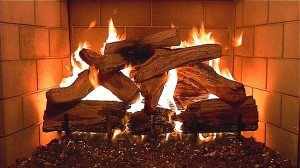Home fires occur in winter more than at any other time of the year. This is due in part to the use of alternative heating sources that many people use for cooking and heating to combat the winter cold.
You can heat your home safely while preventing winter fires. The following tips can help you maintain a fire safe home this winter.
Check the Furnace
- Have your furnace and related components checked by a licensed, qualified professional in your area once a year. Use the professional contractor locater provided by the Indoor Environment & Energy Efficiency Association to find a pro in your community.
- Replace the air filters per the manufacturer’s specifications.
- Clean the floor vents. Make sure they are clear of debris, pet hair, dust, toys and food scraps.
- Make sure outside vents are free from snow and ice.
- Get fire alarm monitoring where your home will be monitored for a fire emergency by monitoring centers.
Fire Place Safety
- Have your chimney inspected annually by a licensed qualified pro. Locate one on the Chimney Sweep Institute of America website.
- Have the chimney cleaned as necessary.
- Keep the area around the fire place free of flammable materials (at least two feet is recommended).
- Burn only dry, well-seasoned wood.
- Always close the firescreen when in use.
- Never leave a fire unattended and extinguish fires before sleeping.
- Have a fire extinguisher handy for use in the event of an emergency.
Space Heater Safety
- Turn them off when you leave the home or go to bed. Don’t leave them unattended.
- Always use a UL certified space heater.
- Keep flammable materials away from the heater, as the majority of space heater fires start with these materials.
- Keep the heater on a level surface away from pets and areas where people may bump into it.
- Avoid using space heaters in flooded areas or water.
- Don’t use long extension cords that people can trip over.
Wood Stove Safety
- Burn only dry, well-seasoned wood.
- Keep the area clear of combustible materials.
- Place the stove on a non-combustible, fire-proof base.
- Don’t connect a stove pipe to a fireplace chimney unless the fire place has been closed off. Never connect it to a chimney of an appliance burning other fuels.
- Never start a fire with flammable fluids like gas.
- Always supervise the fire…don’t leave it unattended.
- Follow manufacturer’s recommendations concerning installation and operation.
Most Important about Heating Safety
The most important protective measure you can take is to make sure there are monitored smoke detectors and carbon monoxide detectors in your home. These detectors notify occupants of a smoke or poisonous gas hazard and monitored detectors will deploy help when needed. Contact your My Alarm Company representative or visit the Fire & Carbon Monoxide Detection page on the website for more information.

